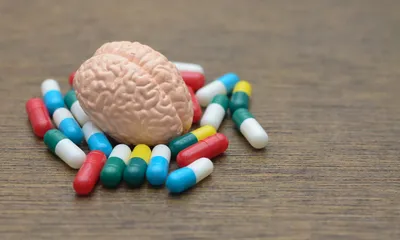Irritable Bowel Syndrome (IBS)
-
Description
-
Signs & Symptoms
-
Anatomy
-
Cause
-
Diagnosis
What is IBS?
IBS is irritable bowel syndrome, and it’s a gastrointestinal disorder where there are problems with motility and how digested food is moved through the intestines. Along with overreactions from intestinal nerves that makes the gut overly sensitive to food material being present in it. IBS can be a very difficult disorder to deal with, but it is never a cause for major health concern nor is there any risk of it developing into intestinal or colon cancer.
There are 2 subsets of irritable bowel disorder, and they are IBS-C and IBS-D. IBS-C is irritable bowel plus constipation and the inability to have regular bowel movements when a person has IBS-C will worsen if they are dehydrated. IBS-D is irritable bowel plus diarrhea and for some people with this variant it may be that they also have difficulty with bowel control.
IBS-M is IBS mixed and will apply for those who have both constipation and diarrhea along with an irritated bowel.
What Causes IBS?
There is not any definitive explanation in the medical community as to what causes IBS. It is true that some people are born with more colon hypersensitivity than others, and their bowel may spasm naturally at time during the final stages of the digestive process. There is some belief that chemical imbalances in the body with serotonin and gastrin and the way they affect nerve signals between the brain and digestive tract can be a part of what causes IBS too.
There are known risk factors for IBS though, and women have IBS much more frequently than men do. It is also more common in older people generally, and other risk factors include food sensitivities, emotional troubles, chronic pain conditions, and medication use with antibiotics, antidepressants, and drugs containing sorbitol.
IBS Symptoms
The symptoms seen with this gastrointestinal disorder will be different for people based on their age. IBS symptoms for adults can include food intolerance, heartburn and indigestion, diarrhea, constipation, belly pain or cramps, excessive gas or bloating, harder or looser stools, protruding belly, mucus in feces, and feelings you still need to relieve yourself after having a bowel movement.
IBS symptoms for children will be different, and in addition to the ones seen in adults may include:
- Bloating
- Excessive flatulence
- Urgent bowel movements
- Feeling bowel movements to be incomplete despite empty rectum
- Weight loss
IBS Treatment
The most conventional approach to IBS treatment is to have the person start on medication like Amitiza or Bentyl that either increases fluid production in the intestine or relaxes muscles in the gut so that IBS is not as severe and is a more tolerable and manageable condition for people. Some people may have their doctor prescribe antidepressant medications in low doses as part of treatment too because they can provide relief from diarrhea, pain, and cramping.
Common OTC laxative medications may also be a good addition to Rx IBS meds like the ones mentioned above if the person is experiencing constipation along with their irritable bowel. For those who have bad abdominal pain because of IBS a mix of prosecretory and analgesic agents may be best to reduce the sensitivity of nerve endings in the intestines.
Taking probiotic supplements can also be helpful for treatment, and getting much more fiber in your diet may be advisable too along with drinking plenty of water and not too much caffeine or alcohol. Avoiding high-fat foods is recommended for people with chronic IBS-C.
Signs & Symptoms
- Abdominal pain or cramping
- Bloating
- Gas
- Diarrhea
- Constipation
- Alternating episodes of diarrhea and constipation
- Mucus in the stool
- Urgent need to have a bowel movement
- Feeling of incomplete bowel movement
Anatomy
- Small intestine
- Large intestine (colon)
- Rectum
- Anus
- Gastrointestinal tract
- Abdominal muscles
Cause
- Muscle contractions in the intestine
- Nervous system abnormalities
- Inflammation in the intestines
- Severe infection
- Changes in gut microbiota
- Stress
- Hormonal changes
- Food intolerances or sensitivities
- Genetics
Diagnosis
- Medical history review
- Physical examination
- Stool tests
- Blood tests
- Colonoscopy
- Flexible sigmoidoscopy
- Lower GI series (barium enema)
- Lactose intolerance tests
- Hydrogen breath test



